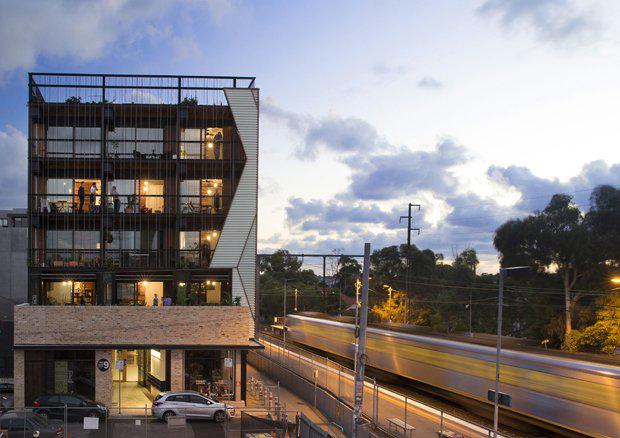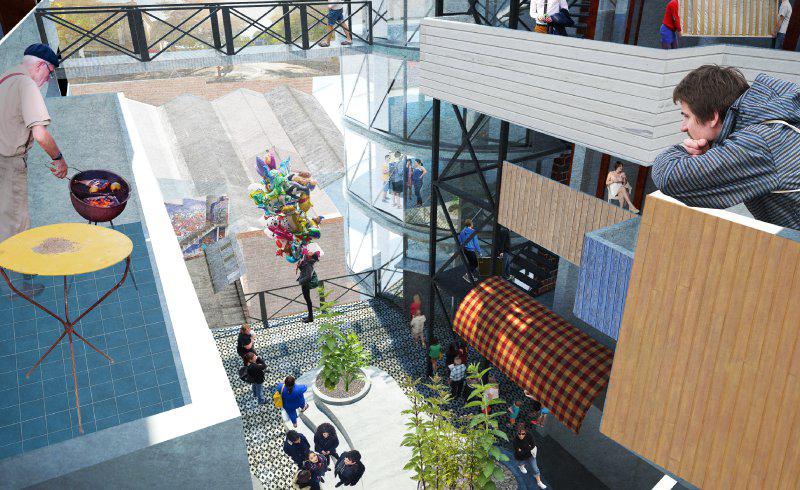Can Co-Living Help Solve Housing Affordability?
In the same way Uber revolutionised the taxi industry, AirBnb short-term accommodation and WeWork transformed the traditional office – a spate of so-called "co-living" companies have sprung up around the world with the intention of reshaping how people live.
A relatively new concept in Australia, co-living is an innovative model of shared housing, a "micro society", and it's just one of the many disruptors that we will be discussing at this month's Urbanity '17 conference.
Proposed solutions to Australia's housing crisis are endless. Over just the last few weeks, we've covered build-to-rent, next generation boarding houses, changing zoning requirements, selling public housing to private developers and public infrastructure.
This model of housing is as much about repositioning our expectations as it is affordability. Co-living is almost like a hybrid between student housing and hotels, and it's being more commonly integrated into residential development at varying levels – even developers creating high-end projects are placing greater importance on shared amenity.
For the most part, co-living spaces offer tenants serviced rooms in shared apartments with communal lounges, bathrooms and kitchens. A group of strangers move into the same building, each signing their own lease for a private bedroom and (sometimes) bathroom, but share common spaces and amenity.

So why would this be an attractive prospect over occupying an apartment or home in the traditional sense?
There are two key reasons: low relative costs and the social benefit of co-living, particularly around mental health.
According to data from the Australian Bureau of Statistics, there will be a 65 per cent increase in the number of single person households in Australia by 2036. The World Health Organisation predicts that over 70% of the human population will be living in urban environments by 2050.
Another common prediction is that depression will be the leading cause of morbidity by 2030. Co-living emphasises connection and community – aiming to bring people together with the purpose of creating happier lives.
Projects utilising the collaborative economy are showing promise in addressing a number of these issues. Through the management of spaces, sharing of resources and hosting activities, co-living promotes a sense of community which could strongly combat unhealthy seclusion and declining mental health.

The concept of co-living is the brainchild of millennials Ryan Shear and Noah Gottlieb, principals of the Property Markets Group (PMG).
The idea was inspired by other collaborative economies and was born out of the need to combat sky-high rents and new social realities.
"When we left college, there was really no place that we could live," Shear told CNBC.
"Social living, which is probably what summarises what we're doing, it didn't exist. It still doesn't exist on a mass scale. There was no community that was just targeted for the young professional."
So they pitched the idea and ran with it — not just developing the building, but seeding the social environment that they hoped would exist there.
"Programs are a piece of it. So having people come to the building that host programs. Big amenity platforms," Shear said.
"You don't need to join an outside gym because our gym is oversized. Or, you don't need to go join a co-working space because we have a co-working space here."
The Australian adaptation, Base Commons, also flips the conventional development model on its head by starting with the occupant first. Rather than designing around the sites restraints, the idea is to engineer a product designed around the inhabitant’s wants and needs, where the consumers are owner-builders.
By involving clients upfront for inclusion in the design process, the result can be more sustainable, more affordable and a more authentic outcome. The intention is to create the first Australian model for co-living in line with this thinking; entirely community-first and design-led.
“Base Commons co-living will feature communal and private spaces to encourage work and living with a shared community experience,
“Residents will live in compact studio accommodation with shared living space, designed not only for startups and entrepreneurs, but also for young couples and older persons with an inter-generational focus, who share wider cultural and environmental aspirations.” Al Jeffery said.
Founder of Base Commons, Al Jeffrey will share his work on community, innovation, wellness and sustainability at
Base Commons explores the future of co-living, a model of "curated" shared housing.
Click here for more information and to register for tickets. Be quick to make sure you don’t miss out!













